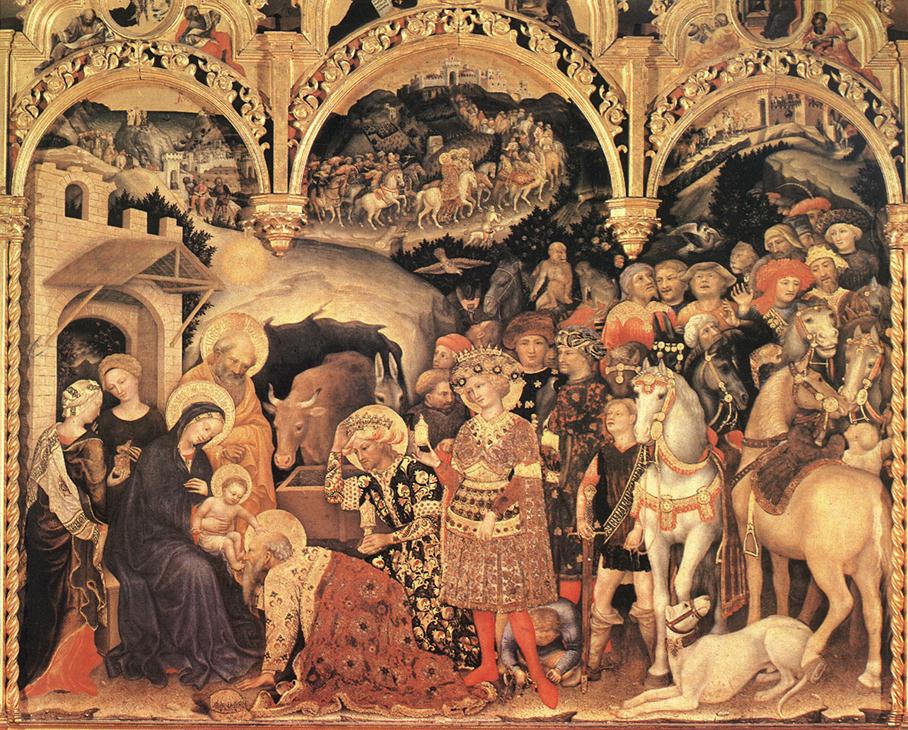Preachers have an opportunity throughout Year A to set the specific world of Matthew’s community beside our own. That is the focus of this essay. (Part II will deal with Jesus’ teachings in Matthew about a new way to live.) Seeing our own world through Matthew’s world gives us new perspective.
From the very opening of the Gospel, the genealogy signals that Jesus’ life and death is meant to disorient and reorient this world. His lineage contains unexpected people: Gentiles and women. Preaching, then, on Matthew should seek that same disorientation — critiquing worldly empire/s and cultures (especially perhaps the culture/s of the church) — and articulating the power of God’s “empire,” God’s reign, over worldly empire.
Matthew wrote after the destruction of the temple and defeat of the Jews in 70 CE. He lived in Antioch, Syria, the third largest city of the time (after Rome and Jerusalem), which was directly under the power of the Roman Empire, the Pax Romana. Matthew’s contexts alert us that the Gospel writer understood Jesus’ teachings as intimately connected to a socio-economic climate built on increased violence for increased social control.1
The Gospel depicts a political and economic system of great inequality, like what pertained in Jesus’ own time, merely decades earlier. The elites controlled wealth (land, slave labor, rents, and taxes), power, and status.2 Everyone else provided for the elites and did not have enough for themselves.3
Suffering from disease, malnutrition, overwork, taxation, and economic marginalization and exploitation, the benefits of empire were meager for most. Jesus’ miracles, especially healings and exorcisms, by bringing genuine blessing, testified that the claims of Roman benefaction rang hollow.4
Despite Roman propaganda about its gracious rule, the “peace of Rome” meant that 98% of the people were oppressed politically, economically, theologically, and militarily so that the 2% could have peace and plenty. In 100 CE, Antioch had ca. 150,000 people of which 20,000 (13%) were Roman soldiers. The city was one mile wide and two miles long with a population density of 75,000/square mile. The colonnaded main street (about 2-1/4 miles long) was paved with marble, a gift from Herod.5 The opulence of the 2% confronted people daily.
The very language of Jesus in Matthew’s Gospel confronts the Empire and subverts Roman claims:
- Because Rome’s messages about what the Empire “gave” to the 98% were called “good news,” euangelion,6 Jesus proclaimed “good news” of a different sort, challenging the very language of Empire.
- The titles of significant figures in the Roman Empire made it clear that the rulers were conceived by a god and, having divine powers, were identified as “agents chosen by the gods to do their will.”7
- Jesus’ claims that God sends “rain on the righteous and on the unrighteous” (5:45), mirrors claims made of the god, Jupiter.
- Jesus refers to God as “our Father… in heaven” (6:9; 11:25), using the language the poets employed about Jupiter. In the Gospels, Jesus refers to God as “Father” twenty-three times; fifteen of these are unique to Matthew. Jesus — not the emperor — is the agent of God’s will and power.
- When Jesus says, give “to the emperor the things that are the emperor’s, and to God the things that are God’s” (22:21), Caesar and God are not equal.8
- In 28:18 Jesus says that he and God share “all authority in heaven and earth,” disallowing the claim of Jupiter or the Roman emperor.
Jesus poses a real challenge to the Roman Empire where order is kept by threats and violence. His “weapon” is the word of God, calling the people to renounce power and wealth and to oppose the values embodied by the Empire’s ruling elite.9 It shall not be among the followers of Jesus as it is among the rulers of the land.
The key to Matthew is the Sermon on the Mount as the first of the five discourses that constitute the Gospel’s structure (see Part II). In that sermon, blessing precedes instruction in how the community of faith should live.
Preachers should keep in mind throughout the year the relevance in our own time of Jesus’ call to Matthew’s community. Worldly empire still threatens the real peace of the people.
Faithful preaching cannot leave the world’s assumptions unchallenged. . . . Preaching should “move” us, and not just emotionally, by dislocating us from our ordinary sense of time and location and then reorienting us so that we gain fresh perception of God’s ways.10
The fruits of this year-long challenge will be in bringing to light how God’s work is confronting inequalities today. Where is Jesus’ word making change in your community?
1 Warren Carter, Matthew and Empire (Harrisburg, PN: Trinity Press International, 2001), 36, 38.
2 Warren Carter, “Proclaiming (in/ against) Empire Then and Now,” in Word & World 25, no. 2 (Spring 2005), 153.
3 Estimates are that of the 98%, 5-10% were at the very bottom: those who “performed little labor such as criminals, beggars, the physically deformed, and the sick.” Those who could produce — perhaps 88% of the population — were taxed at a rate of 30-70% of what they made. Carter, Empire, 18-19.
4 D. Michael Cox, “The Gospel of Matthew and Resisting Imperial Theology,” in Perspectives in Religious Studies 36, no. 1 (Spring 2009): 36.
5 Carter, Empire, 33-41.
6 Cox, “Gospel,” 30.
7 Carter, Empire, 79.
8 Ibid.,63.
9 Ibid.,10.
10 Stanley P. Saunders, Preaching the Gospel of Matthew (Louisville: Westminster John Knox, 2010), 4-5.

